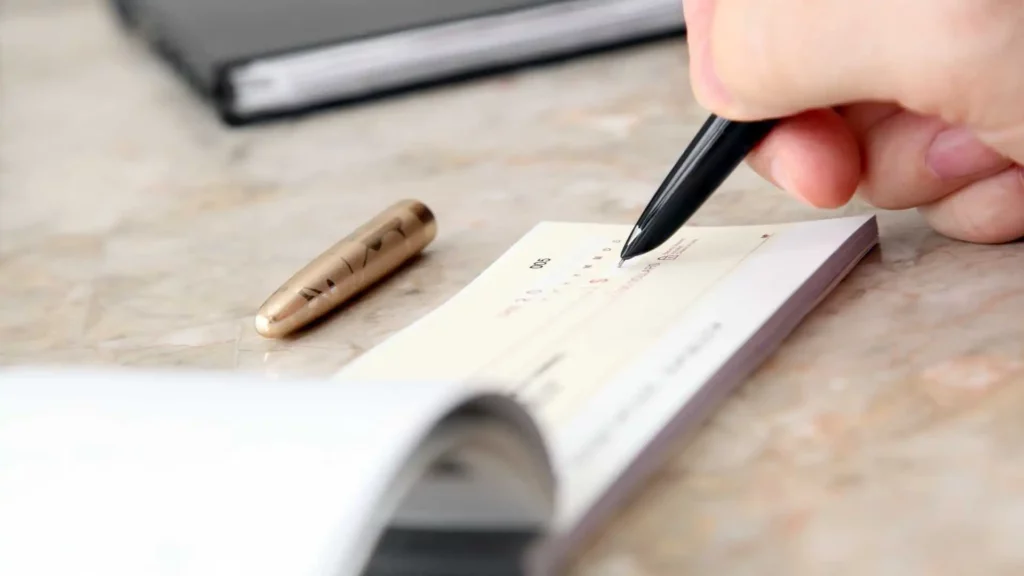In the ever-expanding world of digital transactions, the shadow of credit card fraud remains large, posing a widespread threat to consumers and organizations. Understanding the complexities of card fraud becomes increasingly essential as we navigate a world where financial transactions are primarily conducted electronically.
Let’s explore the details related to credit card fraud, unraveling its different forms and functioning processes and, most importantly, providing readers with the ability to recognize, avoid, and respond to this ongoing threat.
What is Credit Card Fraud?
Credit card fraud is an identity theft in which unauthorized persons use your credit card information to make transactions or access accounts without authorization. This unlawful usage can cause financial loss and emotional suffering for the victims. Despite credit card providers’ minimal liability for fraudulent purchases, users must maintain vigilance and report any suspicious activity promptly.
Types of Credit Card Fraud
Credit card fraud may take many forms, each with its distinct characteristics. Understanding these categories is critical for strengthening our defenses against the ever-changing strategies used by fraudsters.
Card-Not-Present (CNP) Fraud
Card-Not-Present (CNP) fraud occurs when scammers gain card credentials for fraudulent online or phone transactions while not having the actual card. Information acquisition takes many forms, from the hidden corners of the dark web to ingenious phishing attempts and large-scale data breaches.
Credit Card Skimming
Credit card skimming is a fraudulent operation that creates counterfeit cards using stolen information. Skimmers are discrete devices attached to ATMs or card readers that steal data from the magnetic strip on valid cards. The stolen information is used to create counterfeit cards for illegal transactions.
Credit Card Application or Account Fraud
Fraudsters use uncommon methods, such as searching through trash or stealing mail, to get personal information for credit card applications and accounts. Armed with personal information such as home addresses and Social Security numbers, they break into current accounts or defraud authorities by applying for new credit cards under fictitious names.
Lost or Stolen Card Fraud
The traditional approach involves utilizing a lost or stolen card for fraudulent purchases. This might be due to the cardholder’s unintentional loss, mail theft upon delivery, or expert pickpocketing. Despite its conventional character, this type of credit card theft continues to pose a persistent danger.
How Credit Card Fraud Works
Understanding the dynamics that drive credit card theft is critical for successful prevention. Here are the standard ways it happens:
Lost or Stolen Cards
Scammers use stolen cards to make illicit transactions. Physical ownership of the card is required for point-of-sale transactions.
Card-Not-Present Fraud
Scammers utilize collected card information to conduct online or phone transactions. Dark web purchases and phishing schemes are popular sources of information.
Credit card skimming
Skimmers are devices that collect data from cards’ magnetic strips. The stolen data is then utilized to generate counterfeit cards.
Application or Account Fraud
Personal information collected differently is used to apply for new credit in another person’s identity. Stolen documents may be used to support fraudulent applications.
Lost or Stolen Card Fraud
Fraudsters utilize cards that people have lost. Reporting the card as lost or stolen may result in a replacement card being sent to a different address.
Unfamiliar Transactions
Regularly scrutinize your monthly account statements for any signs of fraudulent activity. Fraudsters frequently charge tiny amounts to avoid discovery. Closely watching your transactions enables you to detect irregularities and take prompt action.
Blocked Account Access
Loss of access to your account may indicate unlawful behavior. If you find yourself unexpectedly locked out, you must immediately investigate and resolve any suspected security compromise.
Changes to Credit Reports
Monitor your credit reports for any unauthorized accounts or unfamiliar addresses. Any irregularities should be immediately reported to the appropriate authorities. Regularly reviewing your credit reports is an early warning system for suspected identity theft.
Unexpected Calls from Creditors
Exercise caution when receiving unexpected calls requesting personal or credit card information. To confirm the legality of such calls, contact your creditors immediately using their official contact details. This preventive technique prevents you from falling victim to phishing efforts or fraud.
How to Avoid Credit Card Fraud?
Credit card fraud may be prevented using a proactive strategy combining preventive measures with watchful behaviors. Let’s look at the main ways to avoid falling victim to credit card fraud:
Review Your Account Regularly
Regularly monitoring your credit card account is an important preventative practice. Here’s how to include this into your routine:
Check Statements
Check monthly statements for any unusual or unlawful activity. Even little charges might be indicators of fraudulent behavior. Thus, a comprehensive investigation is required.
Instant Alerts
Enable quick purchase alerts using your card issuer’s mobile app. These alerts give real-time notifications for all transactions, allowing you to notice and resolve errors immediately.
Verify Merchants
To verify merchants, check their names online to see if they differ from well-known ones. Fraudsters may employ false merchant names; thus, validating their legality provides additional security.
Do Credit Monitoring
Credit monitoring services provide an extra degree of security for your financial well-being. Here’s how you can use these services effectively:
Fraud Warnings
Set up fraud warnings with major credit bureaus to avoid illegal account modifications. These notifications motivate creditors to verify your identification before making significant changes, lowering the likelihood of fraud.
Credit Freezes
Consider freezing your credit reports to prevent unauthorized access. This proactive measure makes it more difficult for fraudsters to register new accounts in your name, offering full protection against identity theft.
Keep Your Physical Cards Safe
Protecting the actual card is critical for preventing traditional forms of credit card theft. To keep your physical cards secure, use these practices:
Shred Documents
Dispose of outdated documents containing card numbers safely by shredding them. Using a paper shredder increases security and keeps sensitive information from the wrong hands.
Protect Against Loss
Keep physical cards secure to prevent loss and promptly alert the issuer if they go missing. Prompt reporting of lost or stolen cards helps to avoid illegal usage and reduces possible financial losses.
Avoid Lending Cards
Maintaining sole ownership of your card decreases the danger of illegal transactions and gives you control over its use.
Be Watchful Online
Be wary. To avoid fraud, being more vigilant while conducting online transactions is essential. Here are crucial practices for staying vigilant:
Phishing Awareness
Be cautious when receiving emails or texts asking for personal information to avoid phishing. Stay aware of phishing attempts that fool you into disclosing sensitive information. Before replying, be sure the communications are legitimate.
Reliable Websites
Make purchases from safe and reliable websites. Look for signs of a secure connection, such as “https” in the URL, and make sure the website has an excellent reputation for reducing the danger of discovering bogus platforms.
Monitor Credit Score
Regularly monitor your credit score for any unexpected changes. Sudden swings or unusual activity may be evidence of fraud. Keeping a careful check on your credit score helps you to identify and fix problems quickly.
What Steps to Take if You’re the Victim of Credit Card Fraud?
Credit card fraud may be an unpleasant experience, but taking prompt and firm action is critical to minimizing the damage to your money and personal information. If you think or confirm that you are a victim of credit card fraud, take these critical measures to protect yourself and resolve the matter.
Notify Your Issuer
If you detect fraudulent or unusual purchases on your credit card, notify your card issuer immediately. Most credit card issuers have specific lines for reporting fraud, and the sooner you contact them, the quicker they can launch an investigation. Here is what to do:
- Call the Toll-Free Number: Dial the number on the back of your credit card. This is usually the most straightforward approach to report fraud.
- Use Online Channels: Many credit card issuers provide tools for reporting fraud on their official websites or mobile applications. Log into your account and follow the steps to report illegal transactions.
- Provide Necessary Information: Be prepared to offer details regarding the transactions. This might contain transaction dates, quantities, and merchant names. The more information you offer, the more thoroughly the issuer can examine.
- Card Replacement: If your card has been hacked, request a replacement card with a new number. This helps to prevent future unauthorized usage.
Place a Fraud Alert
Consider adding a fraud alert to your credit reports to provide an added degree of security. A scam notice advises creditors and lenders to verify your identification before issuing credit. Follow these procedures to create a fraud alert:
- Contact one of the three main credit bureaus: Equifax, Experian, or TransUnion. The bureau you call is supposed to notify the other two of the fraud notice.
- Provide Information: When submitting a fraud alert, you may be required to confirm your identity. It may contain your name, social security number, address, and other pertinent information.
- Fraud Alerts: Fraud warnings are usually valid for 90 days but can be extended if required. If you reported the scam to the authorities, you may be entitled to a seven-year fraud alert.
- Monitor Credit Reports: During the fraud alert period, monitor your credit reports for any unexpected activity. You are entitled to one annual free credit report from each bureau, which you may receive at www.annualcreditreport.com.
Contact the Credit Bureaus
In addition to posting a fraud alert, you must personally contact the main credit bureaus to advise them of the credit card theft. It guarantees they know the issue and can take the necessary steps to safeguard your credit. Here is what to do:
- Equifax, Experian, and TransUnion: Contact each leading credit bureaus individually. You may contact them via their websites, phone numbers, or mailing addresses.
- Inform about fraud: Clearly state that you have been a victim of credit card fraud. Provide all relevant information and supporting evidence, such as the fraud alert you’ve placed.
- Request a Credit Freeze: If you are concerned about additional efforts at identity theft, consider placing a credit freeze on your reports. A credit freeze restricts access to your credit record, making it more difficult for fraudsters to register new accounts under your name.
How to Report Credit Card Fraud
Reporting credit card theft is more than just informing your card issuer. It entails registering a formal complaint with the appropriate authorities and entities. Follow these procedures to ensure that your case is correctly documented.
File a Police Report: If you suspect criminal conduct, notify your local law enforcement department. Ensure to provide them with specifics regarding the fraudulent transactions and any information you have about the alleged perpetrators.
Use the Federal Trade Commission’s Complaint Assistant: Visit the official website and utilize the Complaint Assistant to report the scam. The FTC gathers information that might help law enforcement in their investigations.
Submit documents: When reporting to the police or the FTC, be prepared to provide any paperwork connected to the scam. It might include copies of your credit card statements, communication with the card issuer, and other relevant documentation.
Follow-up: Keep track of all communications and case numbers. Follow up with the police and the FTC on the status of your case. The more proactive you are, the higher your chances of fixing the matter.
Conclusion
In conclusion, credit card theft remains a big issue in today’s digitally-driven society, affecting consumers and companies. Identifying fraud symptoms, such as unusual transactions or changes in credit reports, enables people to act quickly. As we traverse the complexity of the digital world, companies like Beem serve as crucial allies in the battle against credit card theft.
Beem offers advanced monitoring and alarm services, improving your bank accounts’ overall security. Beem aims to provide users with real-time information and notifications, guaranteeing a quick response to any dangers. In a world where financial security is critical, Beem is a trustworthy partner, supporting the joint effort to prevent credit card fraud and defend the financial well-being of individuals and companies alike.
Read Related Article: Loan Fraud
FAQs
How do you handle card fraud?
Call your card issuer immediately if you suspect card fraud, report illegal purchases, and seek a replacement. Set a fraud alert on your credit reports, monitor them often, and submit a police complaint if required. Act quickly to minimize the financial damage.
Who investigates card fraud?
Card issuers conduct internal fraud investigations, generally handled by specific fraud departments. Law enforcement agencies, including local and federal authorities, may also look into the criminal components of card fraud, mainly if it includes central criminal behavior.
How do they catch debit card fraud?
Debit card fraud is detected using a variety of techniques. Banks utilize sophisticated monitoring systems to identify odd transactions. Customers reporting suspicious behavior, internet monitoring, and coordination among banking institutions and law enforcement all help to detect and prevent debit card fraud.
Do people go to jail for credit card fraud?
People can go to jail for credit card fraud. Credit card fraud is a criminal offense with potential consequences, including jail, fines, and restitution. The severity of the penalty is determined by elements such as the amount involved, the criminal history, and the tactics used to conduct the fraud. Courts take credit card theft seriously to prevent illicit activity.




























